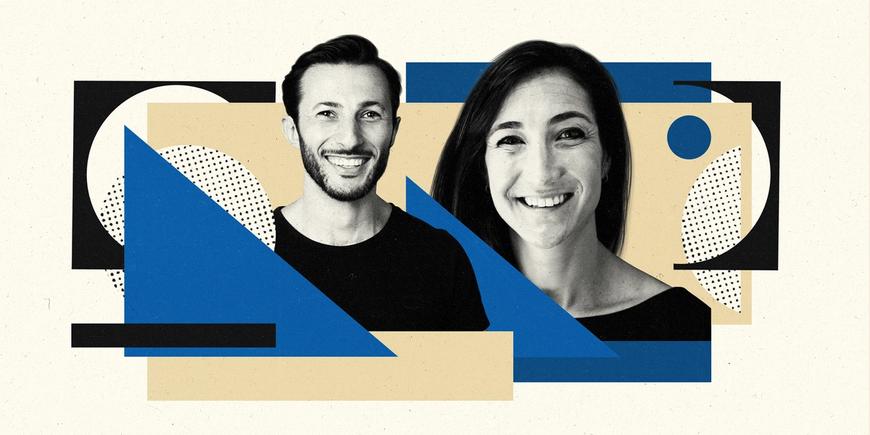Decrypting the ‘CTO Mystique’ With Ian Yamey
Ian Yamey, CTO and Cofounder of Retirable, on technical talent, the many paths to leadership, and what CEOs don’t get about CTOs.

Being an early stage founder means transitioning from tactical to strategic operations—and partnering with new and existing executives in this pursuit. Easier said than done. In the Around the Exec Table series, we feature tips, insights, and best practices, role by role. Keep up with new installments by following me on LinkedIn.
As a People leader, I know teams too often see CTOs treated like the diva of the executive cabaret. Founders and CEOs tend to set low expectations about CTOs’ ability and interest in leadership, and fail to hold them equally as accountable as the other execs for strategy communications and vision that inspire employees and customers.
But at the end of the day, founders should be looking for the exact same traits they’d seek in any leader, Ian Yamey points out. “You're looking for an executive that's going to be a high-impact, high-leverage member of your executive team.”
Ian has previously scaled both QuadPay and PolicyGenius from 5 to 60+ employees and over $100m in funding. He is currently the CTO and Cofounder of Retirable, a company that aims to help every American gain the financial stability they need to enjoy retirement.
I recently had the opportunity to sit down with Ian to dive into his experience as a CTO, indicators that it’s time to hire a CTO, and what makes for a successful CTO and CEO relationship.
If I'm an early stage founder, what is a founding engineer and what should I look for? And what’s the difference between VP of Software, VP of Engineering, and CTO?
A founding engineer is typically the person that you bring on that's going to do almost everything in engineering to get your MVP there, to start building your product around. That person is often highly technical. It's very much an IAC role.
A VP of Software is a title that I haven't seen much recently. VP of Software has kind of morphed into VP of Engineering. That is a better terminology for it because you're your own software, you're doing things to produce something of value for your clients quickly, which is engineering. The VP of Engineering role is more around people and process and you're responsible for building and retaining that team, and also the execution excellence.
A CTO is typically more focused on the vision, the strategy, and the culture of the whole engineering and product and design orgs. They're using technology as leverage, not just on the product side, but across all of the other departments in the company.
At the seed stage, sometimes founders will say, "I need a founding engineer." And sometimes they'll say, "I need a CTO." How do they know which role to hire for?
At the very early stage, often, it doesn't matter what the title is. You're going to be doing the same thing. If you're a CTO and you have only one other engineer on the team, you're probably taking on that founding engineer role. And hopefully, you're then graduating and more focused on a VP of Engineering type role, which is, "Let's hire and retain talent. Let's build that culture. Let's focus on execution."
But if you have that CTO role, the expectation is that at some point you're going to be focusing on a longer-term vision of strategy, on the overall culture and how you can use technology as leverage across the whole organization, and hopefully, you're hiring for those other roles.
When hiring the founding engineer, do you think founders should look for someone who could be a good leader, a vision setter manager?
I think they can. It is harder to find. I've worked with some phenomenal founding engineers that have gone on to become great leaders, that have gone on to become CTOs.
There is also nothing wrong with hiring someone that is an amazing IC, that their path is going to be going down the IC track. Going into engineering management doesn't mean giving up on engineering leadership.
What are the indicators that a founder or CEO would see to know that they are ready to hire externally for a CTO?
There is this kind of mystique and a mad misconception that the CTO is some special type of executive and they need to be treated differently from the head of sales or the head of marketing. You're looking for an executive that's going to be a high-impact, high-leverage member of your executive team.
What advice do you have for CEOs communicating to their engineering teams that the company’s hiring a VP of Engineering or a CTO, and ultimately they're getting a new boss or being leveled?
As with anything, you're asking staff members for their advice and their opinion, but more importantly, you need to explain the reason behind why you're doing this.
Typically, I would frame that around what the opportunity is for all the people that are on that team.
When a CTO comes on board, how can a founder or CEO best partner with the CTO, so that there's the most leverage?
It comes down to having clear expectations. I've talked about the CTO being a strategic role. That means they need to understand what the strategy is and align the technology strategy or the engineering org strategy with the business strategy.
How does it go wrong? Where does it fall apart between a CEO and a CTO?
The optimal relationship between a CTO and a CEO is when there is clear alignment on what you're trying to do, a clear delineation of responsibilities, and trust.
It goes wrong when there is this misunderstanding of the business model or the trade-offs that you're making, when those assumptions aren't made clear, or when that trust falls apart.
Around the rest of the executive table, who else needs to be high functioning for the CTO to succeed?
Everybody. That executive table is your team. A common misconception is that your team is the engineering org, and yes, you are responsible for them and you should be creating a culture where they are happy, they're productive, but your day-to-day team is the others around the table.
To readers aspiring to be a CTO, what career advice would you give them?
It’s a very exciting and dynamic role. You get to work with phenomenal people that are on the C-Suite, and phenomenal people across the company. Your role is ever-changing and you always get to be looking forward, which can be exciting in a world that changes it frequently as ours does.
Something that took me a long time to realize is that your team as a CTO is not whoever is in the engineering and product orgs. Your team is the executive team. You're doing this because you want to be on that team and hit the objectives that the team is trying to do.
SPEED ROUND
What's the best advice you've ever received?
Optimize for fulfillment, not for happiness.
What's your favorite New York City spot for a breakfast or lunch meeting?
I love just meeting in one of the parks, Washington Square Park, near our office, and going for a walk around there.
What's a blog or podcast that you learned a lot from or you would recommend?
I still really love Planet Money.
Favorite book, for business or pleasure, that you've read recently?
For business, it's definitely all of the Marty Cagan books. He's a phenomenal product leader. Read any of them, and you'll be doing yourself a good service.
Your go-to stress release.
I love anything close to the water.
What is your favorite way to spend a weekend?
Definitely with family and friends, where possible at a beach.
